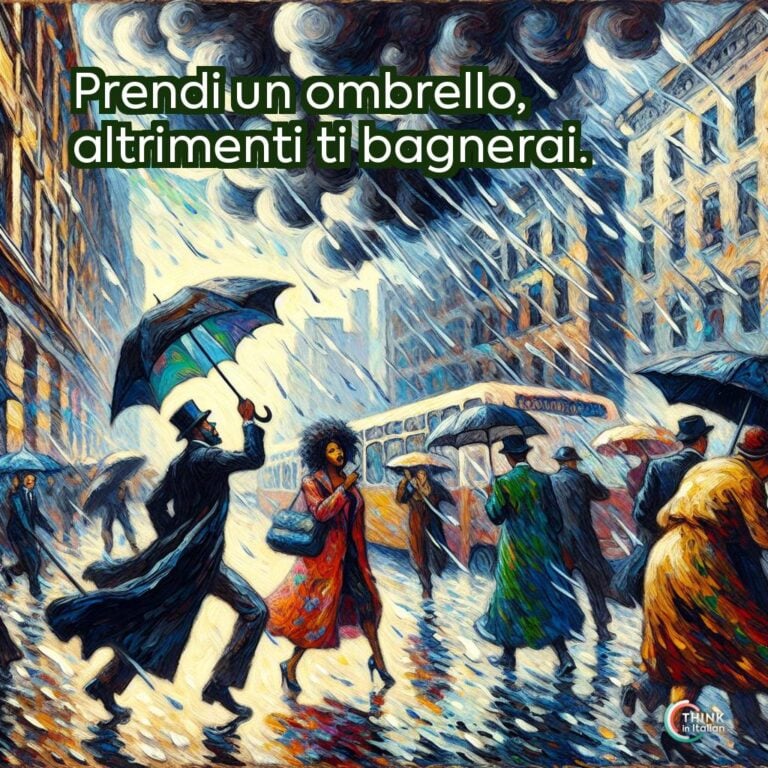“Otherwise” in Italian
Both in Italian and in English, the word “otherwise” is used to introduce an alternative situation, condition, or consequence. In Italian, there are two main ways to translate it:
- Altrimenti
Scrivi il numero, altrimenti te lo dimentichi.
Write the number down, otherwise you will forget it.
- Se no / sennò
Scrivi il numero, se no te lo dimentichi.
Write the number down, otherwise you will forget it.
These two terms can be used interchangeably with the meaning of “if not“, “or else“, “otherwise“. However, only the term altrimenti can be used to mean “in another way“.
Non potevo fare altrimenti.
I could not do otherwise.
“Se no” vs “Sennò”
As I wrote before, there are two different ways we can write this expression: se no and sennò. They are both used in the same way, with the same meaning and are equally correct.
Sennò is basically how se no sounds when used in spoken language. However, they can now be used interchangeably in written contexts as well.
Let me now show you some more examples:
Accetta il regalo, sennò mi offendo.
Accept the present, otherwise I’ll get offended.
Spegni la televisione, se no la spengo io.
Turn off the TV, or else I will do it.
Usciamo a cena? Altrimenti potremmo ordinare un take away.
Shall we go out for dinner? Otherwise we could order takeaway.
Remember that altrimenti can also be used to mean “in another”, as in the examples below:
Non so come dirlo altrimenti.
I don’t know how to say it otherwise.




